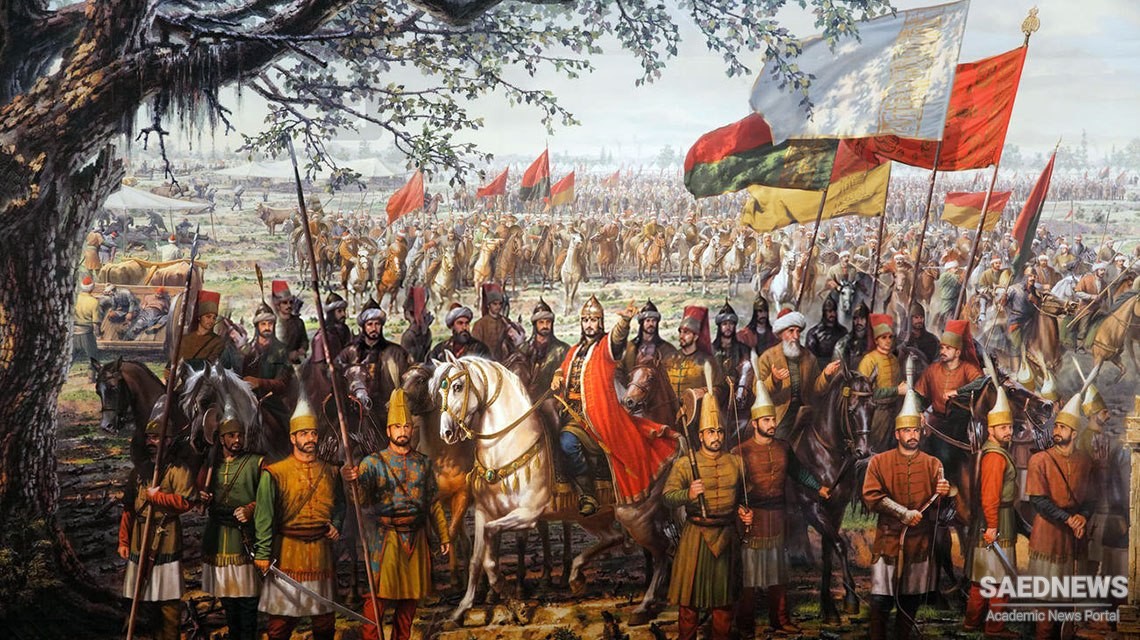One of the more significant side effects of the radical political shifts in the Middle East was the steady ascent to power of a small Turkic tribe known by the name of one of its earliest leaders. The Ottomans originated in northwestern Anatolia, not far from the city that most rulers had dreamt of conquering one day, the magnificent Constantinople. The Ottomans were the beneficiaries of the declining powers of the Saljuqs in Anatolia, where in 1281 a chieftain’s son named Osman conquered new territories and set out to defeat the Byzantine Empire. The Ottomans expanded quickly throughout Anatolia and by 1345 had crossed over the narrow Bosphorus Straits into Europe. In 1389 they scored a decisive victory in the Battle of Kosovo and established control over the western Balkans. Historical record indicates that the Ottoman advances into Europe, reinforced by the frequent settlement in major Balkan cities of Anatolians accompanying the troops, were not always deeply resented by the local populations. In fact, the Balkan peasant soon came to appreciate that conquest by the Moslem invader spelled for him liberation from Christian feudal power, whose manifold exactions and abuses had worsened with the increase of monastic lands. Ottomanization was now conferring upon him unforseen benefits. Not the least of them were law and order. As a French traveller was to write, “The country is safe, and there are no reports of brigands or highwaymen”—more than could be said, at that time, of other realms in Christendom. The grand prize remained elusive, however. Only in 1453, after a harrowing two-month siege, was Constantinople finally captured by the twenty-two-year-old Sultan Mehmet II, the Conqueror (Fatih), who declared it his new capital. The city gradually came to be called Istanbul. The new name was a corruption of the original “Constantinople,” which was later pronounced Stinopol, Stinpol, Estanbul, and, eventually, Istanbul (Source: Political History of Middle East).


 Islamic Faith and Emergence of a Universal Civilization
Islamic Faith and Emergence of a Universal Civilization














































